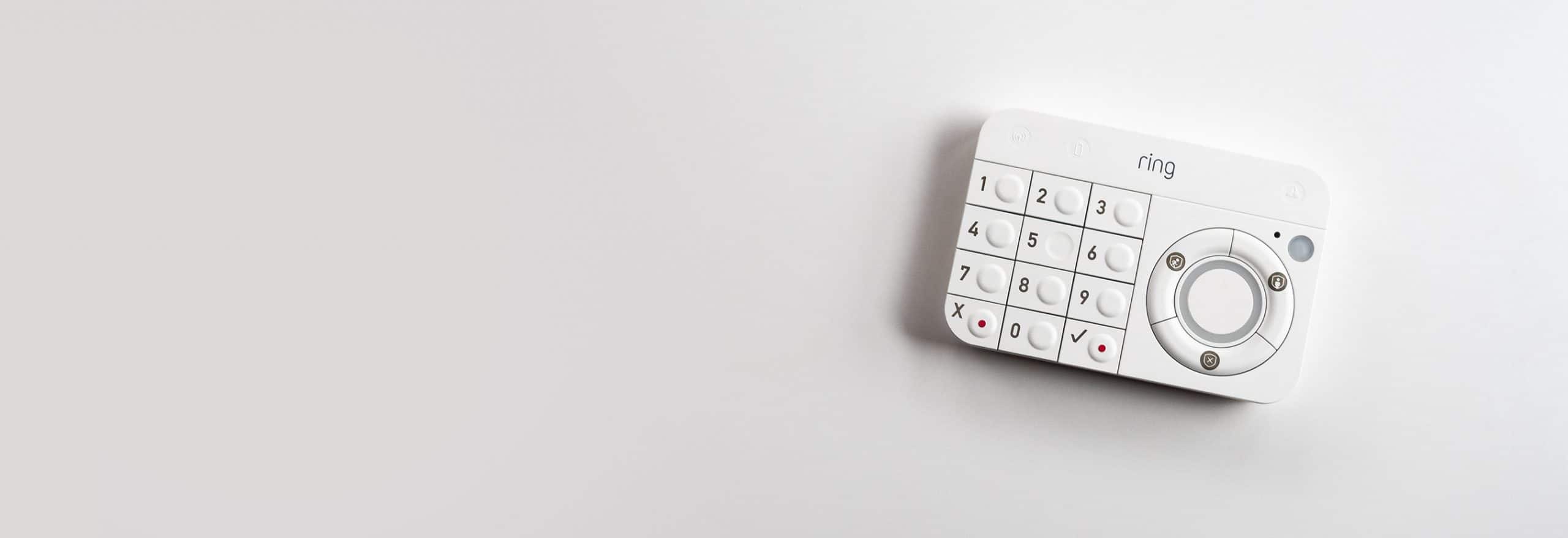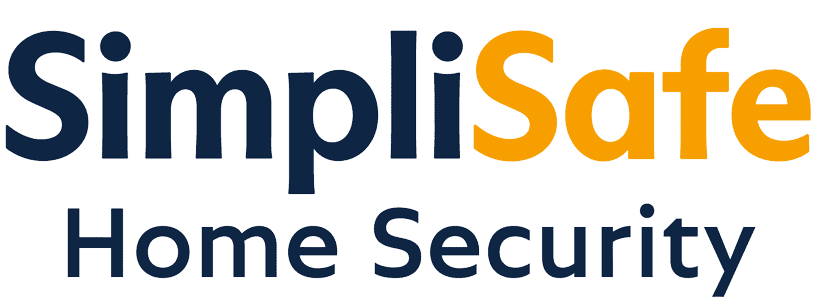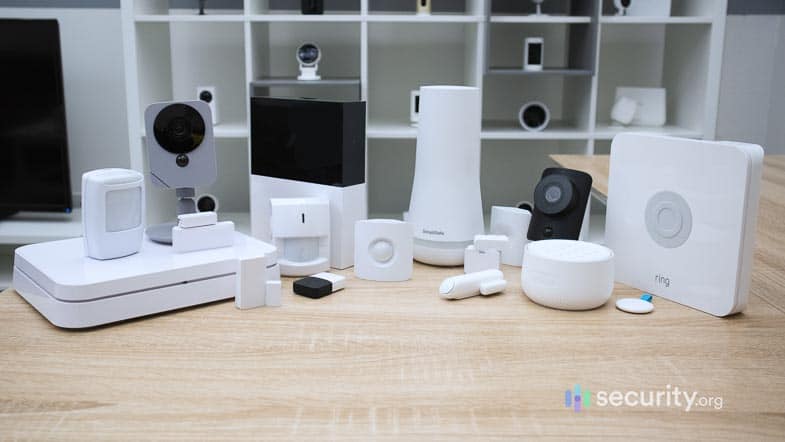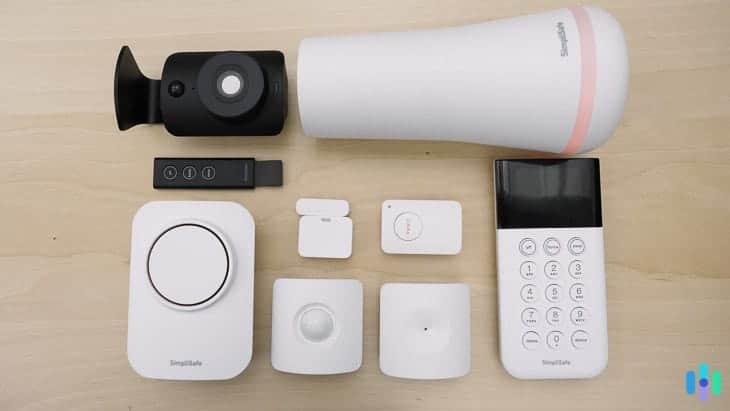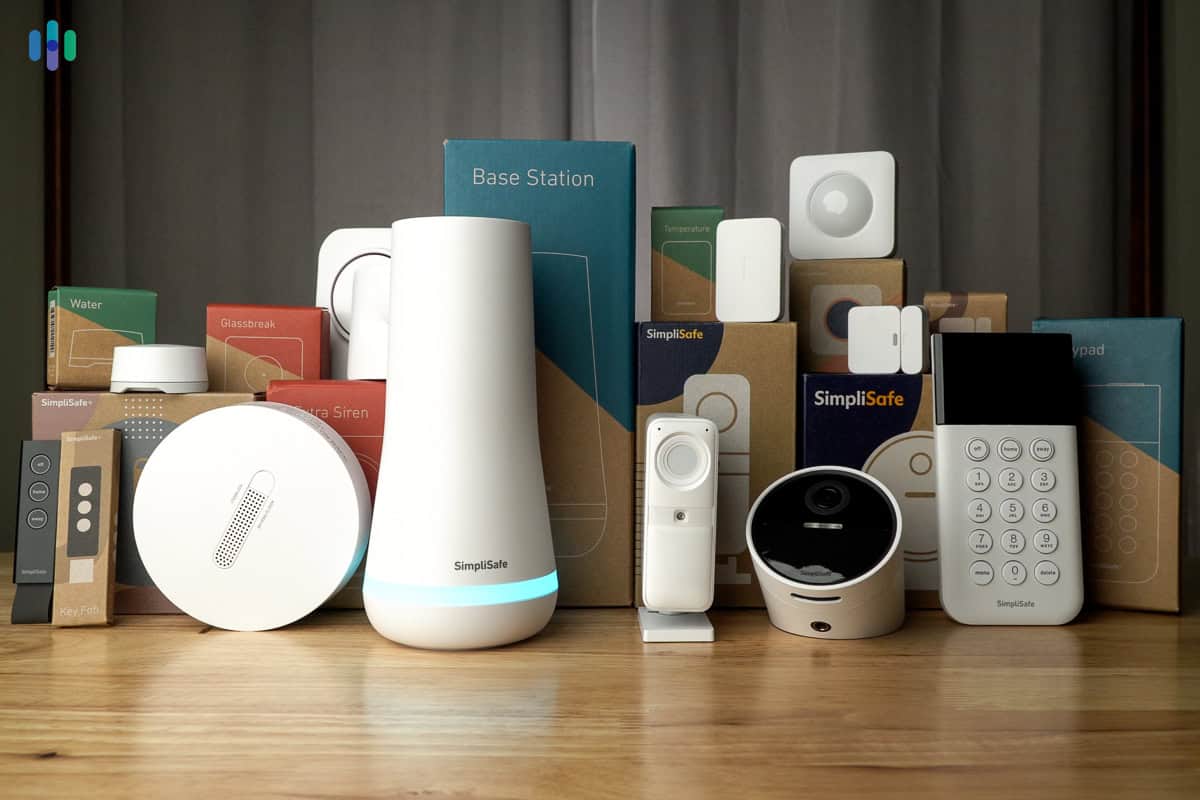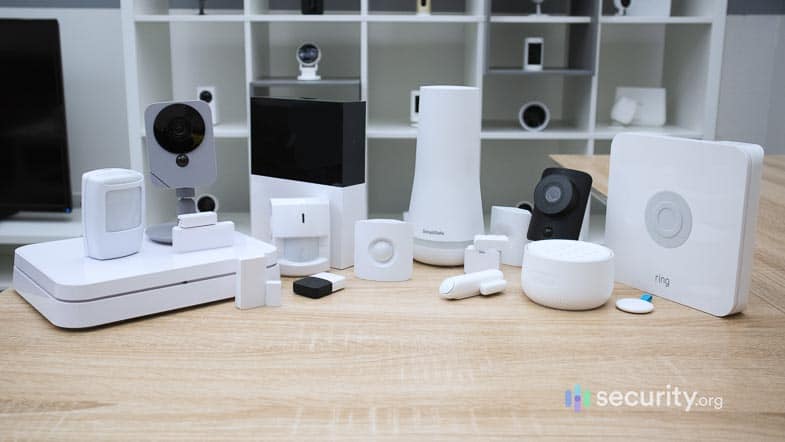Those looking to save money this tax season may be wondering if they can write off their home security system. We hate to be the bearer of bad news, but in most cases you cannot write off your home security system. That doesn’t mean you can’t though; there are some cases where you absolutely can expense it.
We’ve combed through IRS documents and talked with our own accountant to try and find every way to deduct your home security system. The only method we could find involves deducting it as a business expense if you run a home business. Let’s dig in to see if we can save you money this tax season.
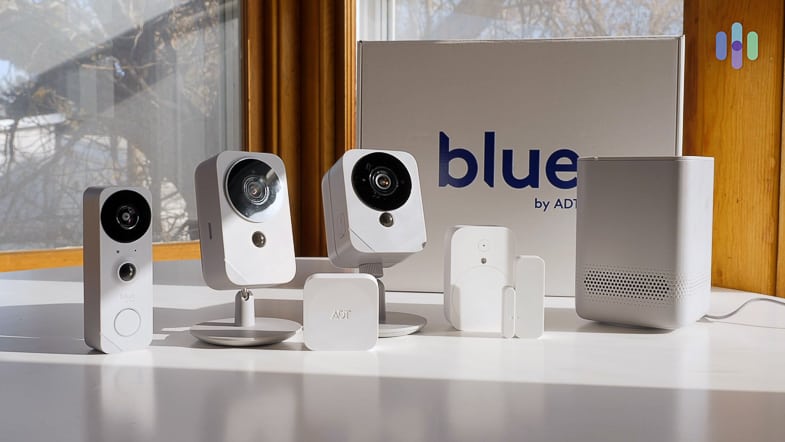
Is a Home Security System Tax Deductible?
Most people can’t deduct their home security system from their taxes, but there are ways a security system can help you save. First, you can often get a discount on your home insurance if you buy a security system. And second, security systems pay for themselves if you think about what they protect: Yourself, your family, and your most valuable possessions. Here are our favorites:
When a Home Security System Is Tax Deductible
Of course, there are some exceptions if you want to write off your home security system expenses. We outline them below.
- Home use vs. business use: If you use your home for business, then you may be able to deduct your home security system. However, this only applies if your home is the principal place of business, so it doesn’t apply to remote employees of larger organizations. Your home needs to be the main place where you meet and deal with customers, clients, or patients (detached structures on your property count as well).1 The security system must cover all of the doors and windows in your home, and you can only deduct the part of the system covering your place of business. You can also deduct any expenses you incurred to monitor or maintain the system. Most people will do a depreciation deduction for the cost of the security system relating to their office, or where they do business exclusively.2
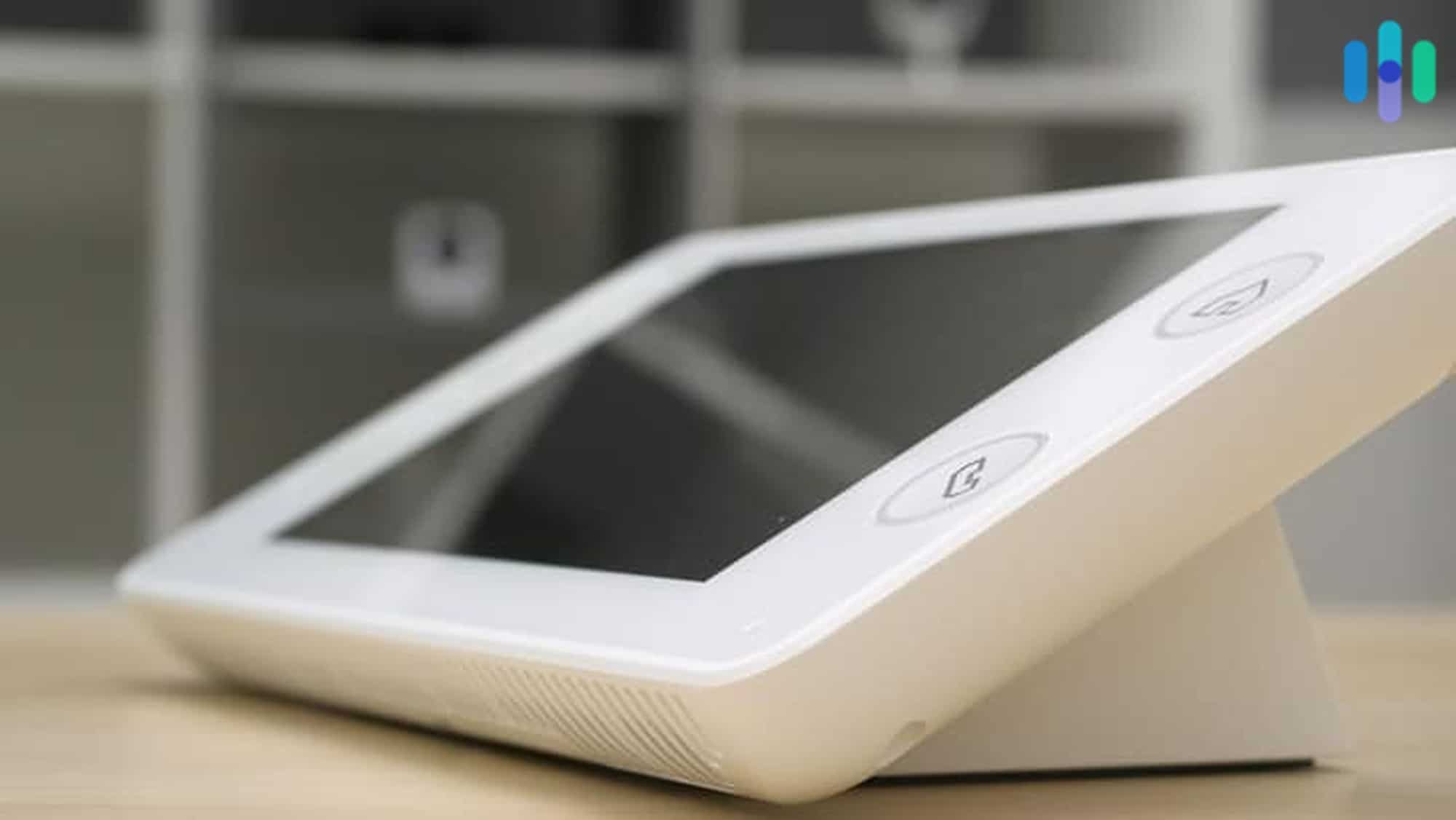
FYI: Getting one of the best home security systems for business is a great way to work from home safely, but be sure to check whether you need a permit for your home security system.
- Rental properties: If you rent a home to do business in, you can deduct the cost of the security system you use there. Again, this rental needs to be your primary place of business. Learn more about the best home security systems for renters.
- Detached buildings: Some people work on their properties but in detached buildings like garages (or, if you’re like us, a garage with a smart door that you can control remotely). If that’s the case, you can deduct expenses related to its furnishings and structure, given you use it exclusively and regularly for your business.3
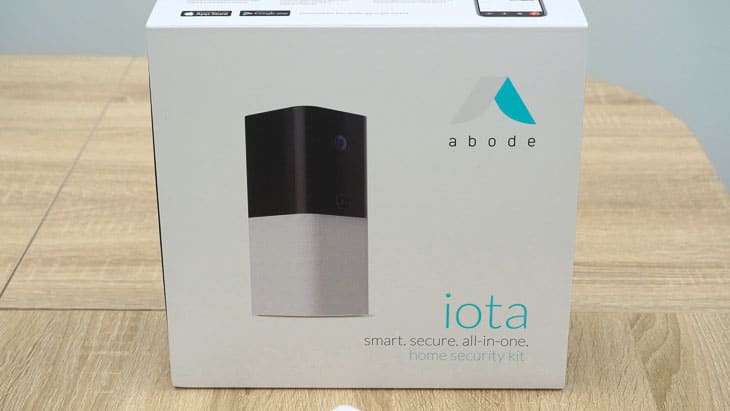
Deduction Limits
If you use part of your home, rental, or detached structure exclusively and regularly for business, you’ll be able to deduct your home security system, but only partially. For example, if you have a security system installed throughout your home, including your office, you can only deduct the equipment, monitoring, and maintenance in your office as a percentage of your entire house.
You can calculate this percentage by either comparing your office’s square footage to your home’s total square footage or counting the rooms. To calculate your office’s square footage, multiply the length by the width of the room in feet. It’s okay to round up or down. Your home office also does not need to be a dedicated room. If half of your bedroom is dedicated as your home office, you can count that space as your home office’s square footage. Read on to learn about the best home security system for your home office.
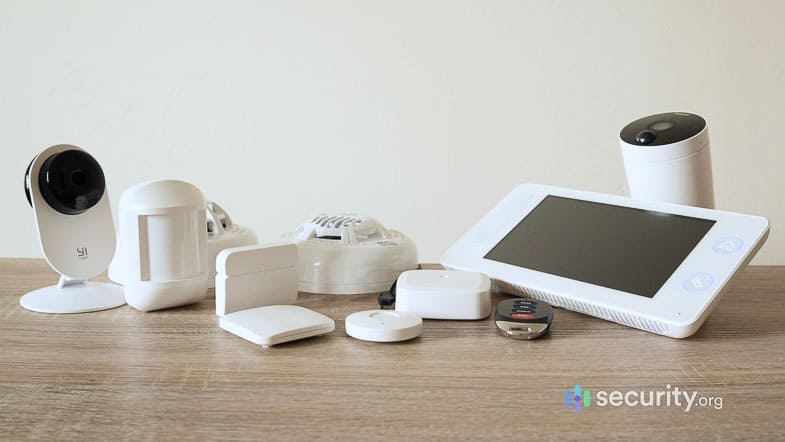
How To Claim a Home Security System on Your Taxes
If the above applies and you use part of your home for business regularly and primarily, you can deduct your home security system in Schedule C, line 30.4
Usually we’re all about DIY. But with taxes, we always recommend speaking to an accountant to maximize these deductions, especially if you run a business. They can help you accurately fill out Schedule C and find other deductions that apply to your home business.
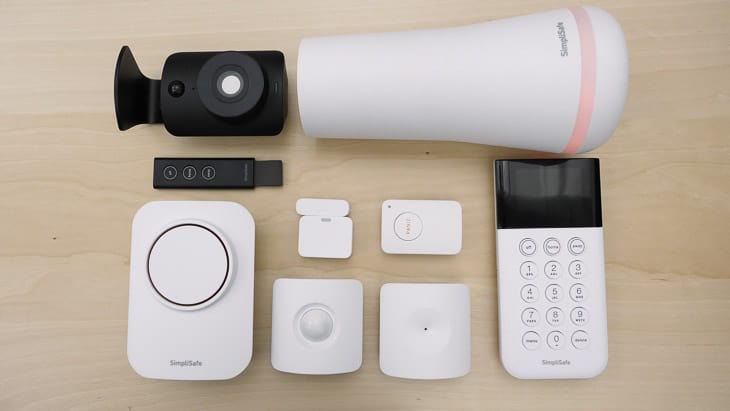
How To Save Money on a Home Security System
The cost of home security systems can get pretty high, depending on how much coverage and monitoring you want. However, aside from a tax deduction, there are several ways to save:
- Get discounts and deals. Many companies offer discounts on their systems (check out ADT deals, SimpliSafe deals, and Vivint deals, to name a few).
Did You Know: Nearly half of U.S. adults have had packages stolen from their homes, according to our Black Friday package theft study. One way to save money is to avoid package theft by implementing security systems, security cameras, or video doorbells or by having packages sent to Amazon lockers rather than your home.
- Choose long-term contracts. If you’re signing up for professional monitoring or paid storage, signing a longer contract can help you save money versus a month-to-month option.
- Only secure entry points. One way to save money on your home security system is to buy less equipment, securing only your doors and windows.
- Only cover the first floor. While it’s safer to include security sensors on your second-floor doors and windows as well, your first floor will be sufficient, most likely. After all, it’ll be hard for thieves to access your second floor without going through the first, unless you have an outdoor second-story porch that’s easily climbable.
- Self-monitor. If you’re OK with taking 100 percent of the responsibility for your home’s security, you can get a home security system with no monthly fees. You’ll self-monitor your system for free, paying for equipment only.
- Use no cameras or cheap cameras. You can either opt for just sensors and no cameras or buy cheap security cameras. The cheapest cameras we’ve tested out are from the company Wyze, whose indoor security cameras start at just $20. Learn more about Wyze camera pricing.
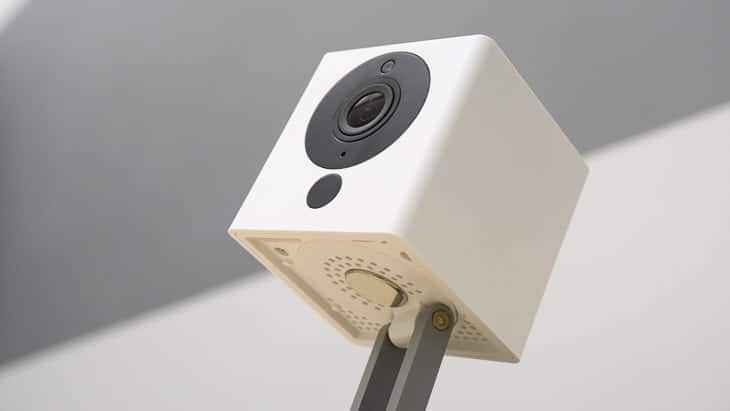
- Buy an affordable system. Systems can range from around $30 for a single sensor to hundreds of dollars for more involved packages. However, there are many affordable security systems on the market, so you don’t need to spend a ton on equipment.
- Check for military or senior discounts. Many companies offer discounts for seniors or those in the military, so check for these before purchasing if you’re in one of these groups.
- Get a discount on homeowner’s insurance. Even if you can’t deduct your home security system from your tax return, you can probably get a discount on your homeowner’s insurance, ranging from 2 to 15 percent total. On average, that saves homeowners $310 a year!5
Recap
So there you have it, the lowdown on deducting your home security system from your taxes. Doing your taxes is usually not a straightforward process, and if you work out of your home, it may be even more complicated. The easiest way to make sure you’re getting all the deductions you deserve, if you’re not using an accountant, is to use tax software. We use TurboTax, personally, although there are many other free and affordable options on the market. These days, nearly everything is automated, so why shouldn’t your taxes be as well?
Frequently Asked Questions
If you’re still fuzzy on the process of deducting your home security system from your taxes, here are the answers to the questions we get the most.
-
What type of expense is a security system?
A home security system can be considered a business expense if you use it in a part of your home that is primarily and exclusively for business.
-
What can you deduct from your income taxes as a homeowner?
As a homeowner, you can deduct the following, according to the IRS:
- State and local real estate taxes
- Home mortgage interest
- Mortgage interest premiums
- Minister or military housing allowance
-
Is a security system considered a utility?
A security system is not considered a utility; it’s a non-utility service like cable TV and the internet.
-
Is a security system a capital improvement?
Security systems are usually considered to be capital improvements, meaning that they don’t include sales tax.
-
Can I write off my home security cameras on my taxes?
In most cases, you cannot write off your home security cameras. But, if you’re using your home security cameras to secure a home office or a home business, you might be able to include them as a business expense. We recommend talking to your accountant if that sounds like your circumstances.

